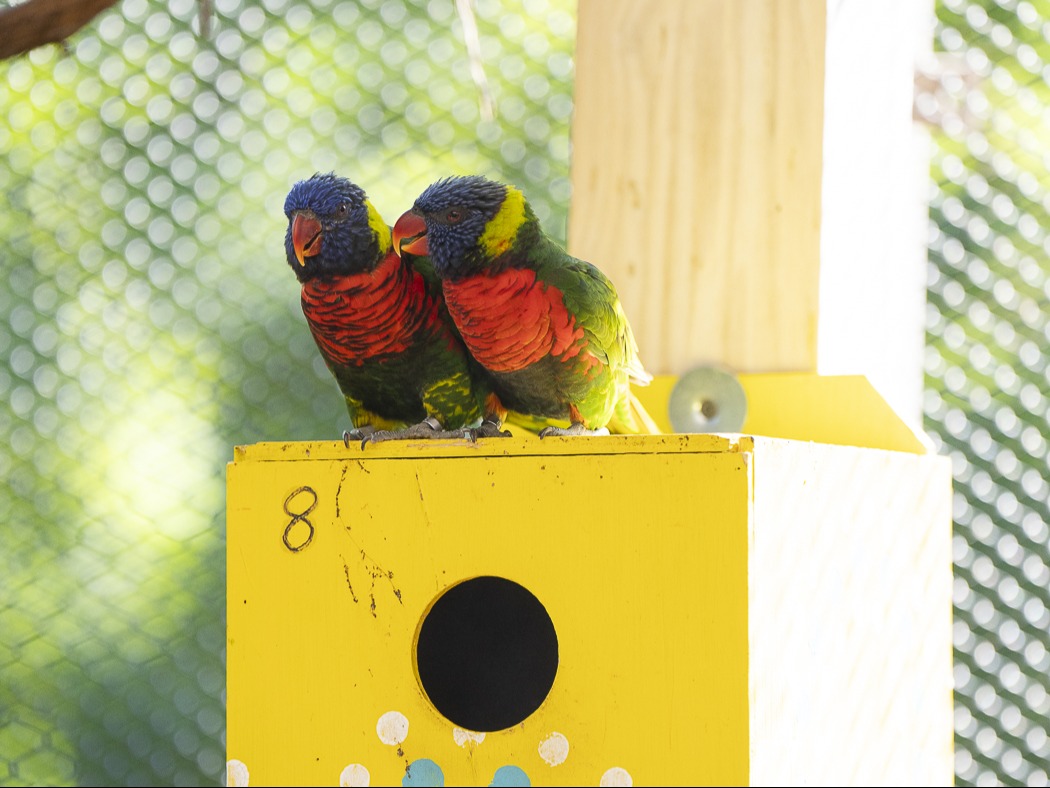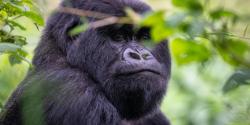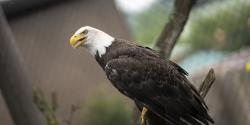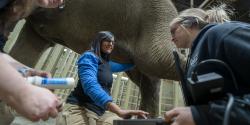If you’ve visited recently, you may have noticed the Lorikeet Aviary is temporarily closed. Some of our birds are receiving medical care, and we want to share more about what’s happening — and the incredible work our teams are doing behind the scenes.
Our flock of more than 60 lorikeets is cared for by a dedicated team who know these birds inside and out. They’re so attuned to the flock that they can spot the smallest changes in behavior — a bird that sits differently, moves less, or isn’t as eager to eat. These subtle cues allow our veterinary staff to act quickly, and that early detection is proving critical in helping lorikeets recover.
In recent weeks, 22 lorikeets have been impacted — 10 have sadly passed away, and 12 are currently receiving twice-daily treatment in our Animal Health Hospital. Testing has confirmed the presence of West Nile virus (WNV), a mosquito-borne disease that affects both birds and people across Ohio and the U.S.
What This Means for Staff, Volunteers, and Guests
- Not contagious: West Nile virus is spread by mosquitoes, not from birds to people, pets, or other animals.
- Environmental, not Zoo-specific: The West Nile virus is an environmental issue carried by mosquitoes. It has been present in the United States since 1999 and is considered endemic, meaning it occurs every year during mosquito season. It is found across Ohio, throughout the United States, and in other parts of the world — it is not unique to the Zoo.
- Who it affects: Most animals (including dogs and cats) are rarely-affected, though some species, like horses and birds, can be more vulnerable. While the lorikeets in our care have been vaccinated against WNV, the vaccination is not always effective, which makes the attentive care from our keeper and veterinary staff especially important.
- For people: According to the Center for Disease Control, most people infected with WNV do not develop symptoms. About one in five may develop mild, flu-like symptoms, and about 1 in 150 may develop severe illness affecting the central nervous system. Each year, about 2,000 cases are reported in the U.S., including more than 1,300 severe cases and about 130 deaths. Symptoms typically appear 2–6 days after a mosquito bite.
- Proactive care: The lorikeets are receiving twice-daily treatments in the Animal Health Hospital, supportive therapies, and close monitoring by keeper and veterinary staff.
- Other birds at the Zoo are not affected. Birds in the Congo Expedition aviary, Asia Quest aviary, Nocturnal building aviary, and North America Trek aviary have not been affected. The teams are monitoring each location, including for any standing water.
Commitment to Care
Lorikeets are native to Australia, where a related strain of West Nile virus (the Kunjin subtype) is present and has affected parrots in the wild. This global context underscores why close observation and early treatment here in Columbus are so vital.
We know how much our guests love the lorikeets, and we look forward to welcoming you back into their aviary soon. In the meantime, please join us in applauding our keeper and veterinary staff for their extraordinary dedication and expertise. Their commitment is making all the difference for these colorful, charismatic birds.










